The war in Ukraine is upsetting many of our certainties. One of the most pressing matters that Germany is currently facing is the issue of energy security. In response to the invasion of Ukraine, both the German government and the EU have now announced that they want to accelerate the expansion of renewable energies in order to be less dependent on Russia. The German Minister of Finance Christian Lindner even referred to renewables in the Bundestag as “freedom energies” in this context.
However, this strategy could lead us from one dependency to the next, writes Nico Beckert. The solar industry is dominated by China, after all. European photovoltaic imports from China already amount to 63 percent. The EU also fears that Chinese companies will only serve the domestic market in the event of shortages.
Meanwhile, the mood of the Hong Kong population is deteriorating fast. Over the past two days, almost 70,000 new Covid infections were registered within the city. China’s President Xi Jinping wants to apply his Zero-Covid Policy in Hong Kong with a heavy hand, including a possible lockdown. The German embassy is already preparing its citizens for the “tough weeks” ahead. “Unclear mass testing, quarantine facilities reminiscent of camps, mandatory masks when jogging, friends leaving the country, cordoned off playgrounds: We will all need a lot of discipline and patience,” Consul General Stefanie Seedig explained the situation on Tuesday in a letter to the city’s roughly 2,000 German residents.
Even “a separation of minors from their parents in quarantine or isolation” is imaginable in this uncertain situation, Seedig said. The once vibrant international business hub was already a shadow of its former self before the Covid escalation. These strict measures are likely to drive off even more expats soon.

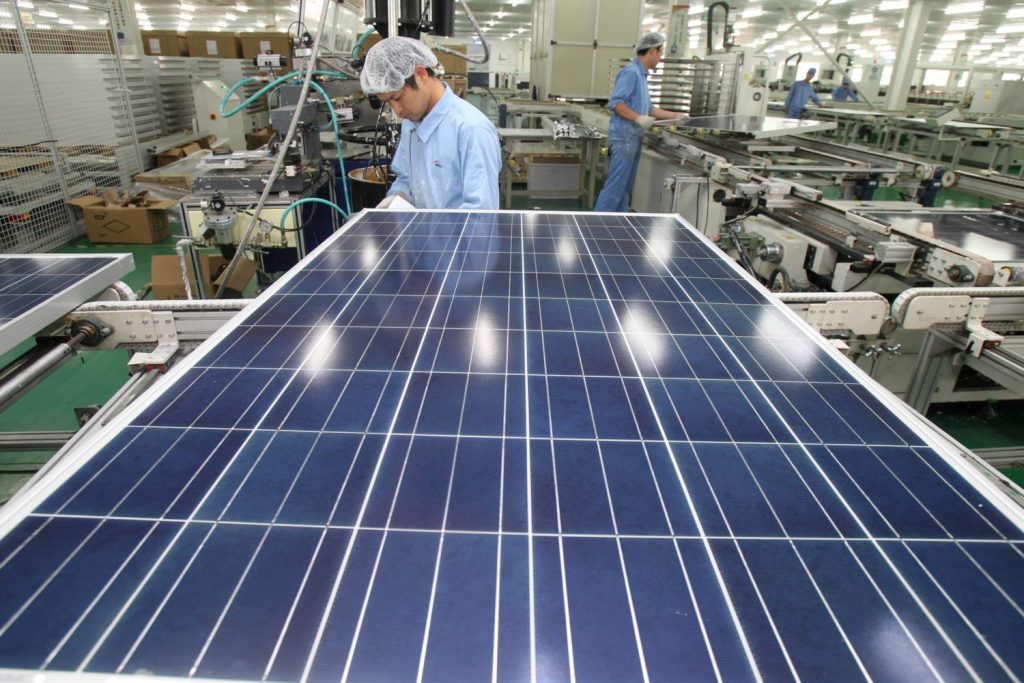
For decades, Russia reliably ensured Germany’s power supply. This could soon come to an end. Partly in response to the invasion of Ukraine, the German government and the EU want to massively expand renewable energies. In reaction to Putin’s war, German Minister of Finance Christian Lindner even referred to renewables as freedom energies in the German Bundestag. But the solar industry is dominated by China. Are Germany and the EU slipping from one dependency to the next? And how will the prices for solar modules develop if two economic areas as large as the EU and China expand their solar power simultaneously?
The Russian invasion of Ukraine shows how risky gas dependency is. That is why the German government now wants to speed up the expansion of renewables even more. According to the next eco-electricity amendment, renewable energies are to cover “almost all” of the country’s power demand by as early as 2035. Solar power plays an important role in this. By 2030, it is to provide 200 gigawatts of capacity – a fourfold increase on the current figure.
The EU will also soon present a new energy strategy. According to insiders, fossil fuels are to be cut by 40 percent by 2030 with renewables being expanded at a faster pace. In addition, further investments in renewables are to be made. An EU strategy to accelerate the expansion of solar power is expected to be announced in June.
But when it comes to the expansion of solar power, the EU and Germany are at risk of becoming even more dependent on China. This is because the entire solar supply chain is dominated by the People’s Republic. Worldwide, three out of four solar modules and 83 percent of solar cells are manufactured in China. As for the raw material polysilicon, the country dominates 77 percent of the world market. The EU Commission recently cautioned against excessive dependence. EU countries produce only 0.4 percent of global solar cells and only two to three percent of modules.
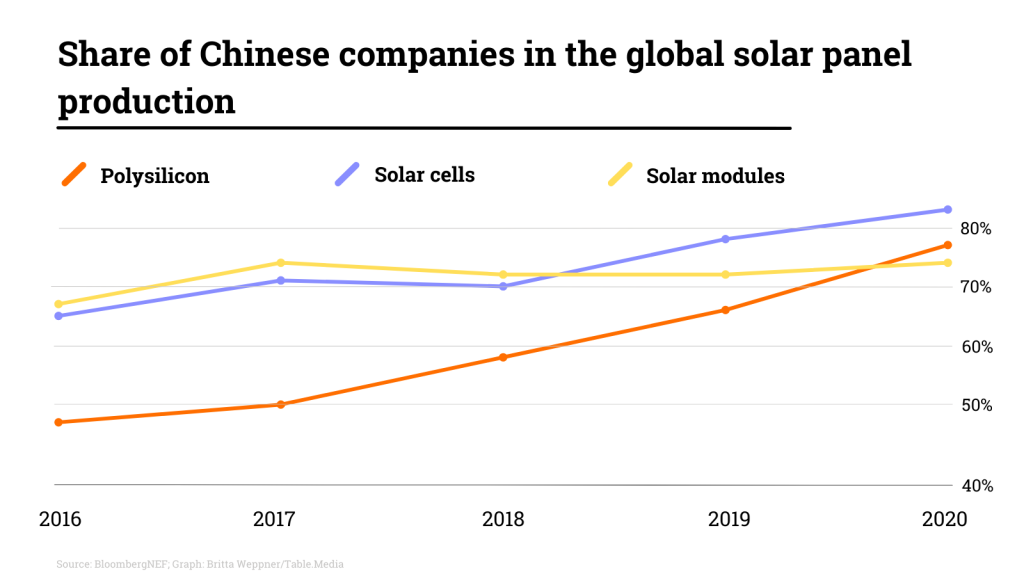
This Chinese dominance is causing great concern for the EU. Supplies from China account for 63 percent of European photovoltaic imports. The solar industry could end up in a situation where it is no longer possible to switch to other suppliers, the EU cautions. The commission warns of “strategic dependence that could, in turn, hamper the EU’s future deployment of solar technologies,” according to a recent report. The EU fears that shortages could result in China serving only its domestic market. “Chinese authorities have tools at their disposal to establish a preference for supply of the domestic market, even in the absence of formal export restrictions,” according to the EU Commission’s assessment.
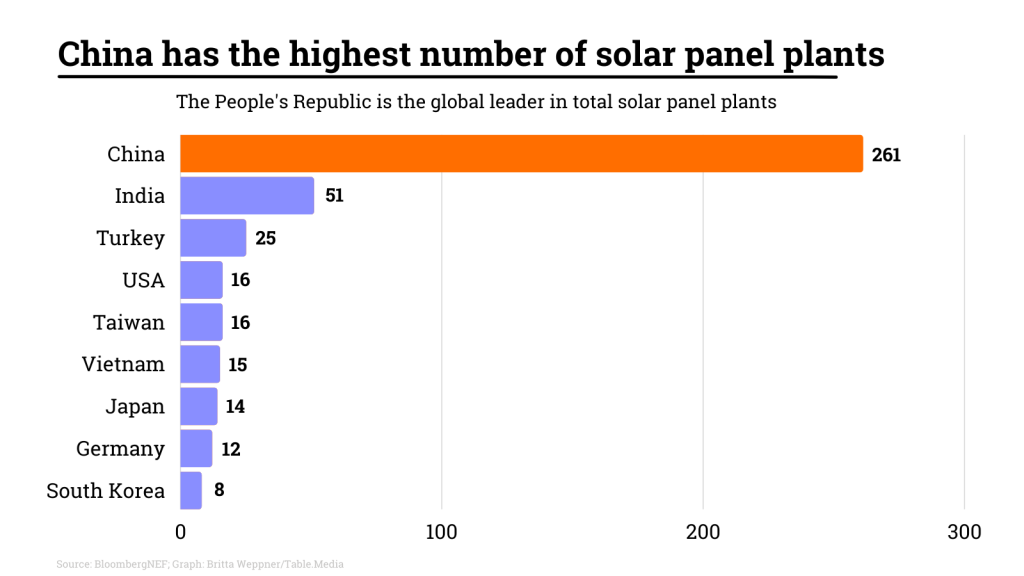
Today, dependence on China already appears to be having a negative impact on solar expansion. “Country-specific events can severely hamper, delay or worst case altogether stop the import and subsequent necessary deployment of solar technologies in the EU,” according to the EU Commission. These issues, along with rising prices for raw materials and power, as well as for transportation and logistics, are said to be the reason that 20-25 percent of planned solar projects in the EU in 2021 have either been postponed or canceled altogether.
For this reason, the EU wants to reduce its dependence on China. European manufacturers intend to increase annual production in all segments of the supply chain – from polysilicon to wafers, solar cells, and modules – to 20 gigawatts by 2025. Given the major expansion targets set by the EU and Germany, however, that is merely a drop in the ocean. And the EU complains that the industry is missing the 20-gigawatt target. It could only be achieved for polysilicon, as industry data show.
The EU Commission proposes that member states should simplify and streamline approval processes for the installation of new solar farms. That would give European solar manufacturers “further certainty when upscaling production capacities,” the commission states. In addition, states could provide financial support to the industry. Internationally, the EU wants to provide a “level playing field”. Specifically, this means that subsidies from other states should not distort the international market for solar products.
The expansion goals for European solar power could lead to a price explosion. Especially since China also has ambitious expansion goals. The People’s Republic will most likely install more than 100 gigawatts of new photovoltaic capacity in the current year alone – almost half of the global expansion forecast for this year. In the People’s Republic, the cost of building solar farms rose last year for the first time in 15 years. However, industry experts believe that the price increase will only last for a short time. The reason is the high polysilicon price. However, China has massively expanded production of the raw material for solar plants (China.Table reported).
Accordingly, experts do not expect a shortage. On the contrary. “The production capacities newly announced and currently under construction in China are so massive that, in all likelihood, there will be an oversupply of polysilicon by 2024 at the latest,” says Johannes Bernreuter, a polysilicon expert from the consulting firm Bernreuter Research. Despite the rising demand, prices for solar modules and systems will soon fall again, says Bernreuter.
The industry expert adds that it also remains to be seen whether the efforts of the EU, the US, and India to reduce their dependence on China will be successful. “It certainly won’t be easy,” Bernreuters believes. In the short term, the goal is hardly achievable. BloombergNEF’s experts also report that it will take a long time for new “solar plants” outside China to reach a significant production scale: “Manufacturers will likely be wary of expanding into an oversupplied market in the absence of solid and guaranteed demand for solar products at premium prices.”
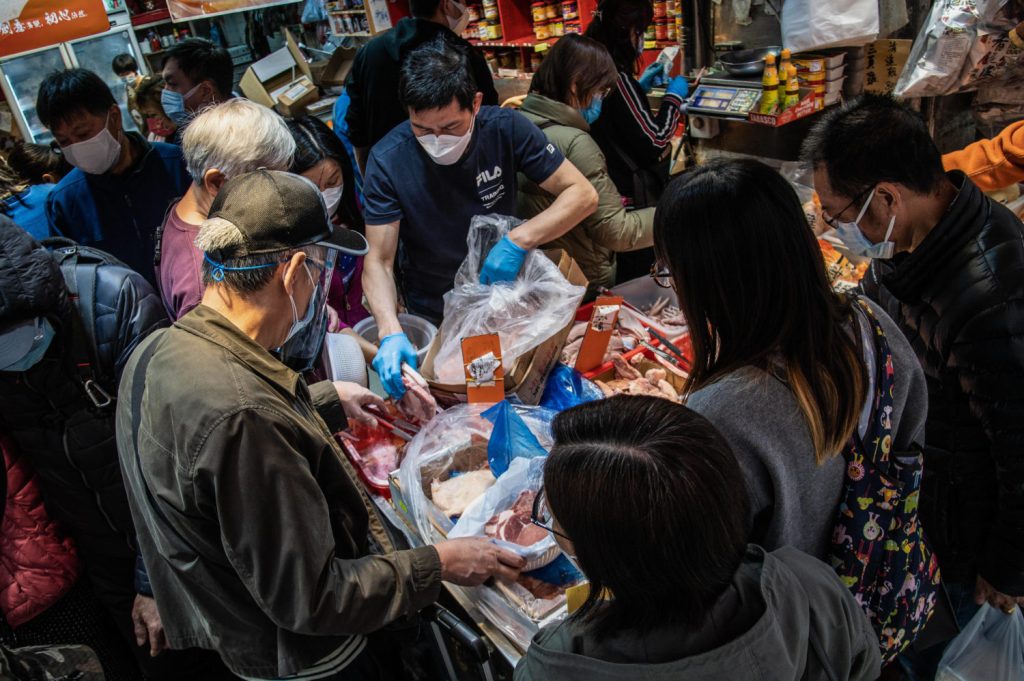
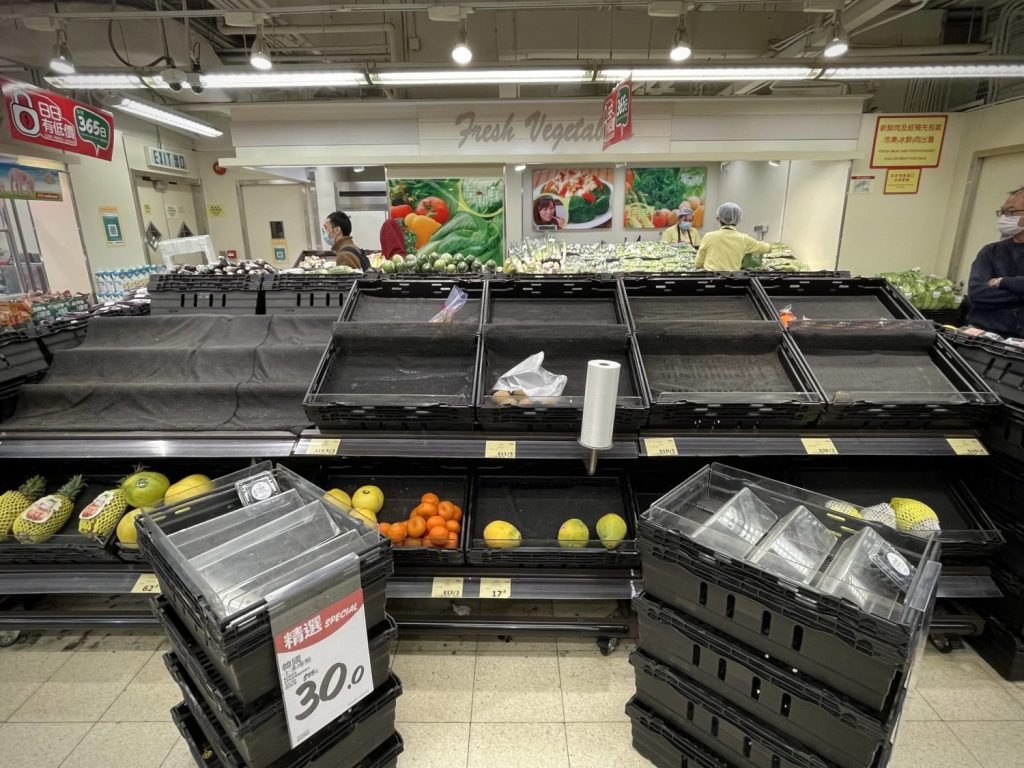
The German embassy in Hong Kong views the upcoming Covid mass testing in the metropolis with great concern. Consul General Stefanie Seedig addressed all German citizens in the city on Tuesday in a three-page letter obtained by China.Table. “Fellow countrymen, we are facing tough weeks in Hong Kong. Unclear mass testing, quarantine facilities reminiscent of camps, mandatory masks when jogging, the exodus of friends, cordoned off playgrounds. […] We will all require a lot of discipline and patience,” Seedig wrote.
Above all, the consulate fears “a separation of minors from their parents in quarantine or isolation.” The German government had expressed this concern in discussions with the government in Beijing a few days ago. The reason is the announced mass testing, which is to commence soon, due to the drastically increasing infection rates (China.Table reported).
Over the past two days, a total of almost 70,000 new infections have been registered within the city, after Hong Kong remained mostly unscathed by the pandemic for more than two years. All residents of the city are therefore to be tested three times within a few weeks. So far, it is unclear exactly what will happen when children test positive while their parents test negative. Hospitals are to decide for each individual case.
To increase the effectiveness of the testing campaign, a possible lockdown of the city for nine days is currently being discussed. At present, only strict distancing mandates and severe limitations on the freedom of movement of unvaccinated individuals are in place. However, people are still allowed to go to work regularly. The stock market also remains open. International schools are holding distance classes.
According to Statista, about 2,000 German citizens lived in Hong Kong in 2020 among its nearly 7.5 million residents. One of the Germans, a research associate at a university in Hong Kong, who wishes to remain anonymous, criticized the authorities’ policy. “After two years of successful pandemic response, the Hong Kong government faces many home-grown challenges. The population was lulled into a sense of security for far too long, and vaccination readiness, especially among the elderly, was too low. Now, the healthcare system is on the verge of collapse,” she told China.Table. There is a general lack of trust in the authorities, who have been harshly punishing political dissent even at the smallest level since the introduction of the National Security Law.
“We cannot enter Mainland China, or any other foreign country, without weeks of grueling and expensive hotel quarantine. Many people have been unable to see their families for two years, including their families on the mainland. As a result, there has been an increase in long-term departures, especially in recent weeks,” the researcher says. In addition, flight bans have been imposed repeatedly.
As a result, the German embassy has braced itself for a possible increase in the number of Germans seeking to leave the country. “We have noticed that you now increasingly need our services to get your papers in order and prepare for a possible departure,” Seedig writes. Additional stand-by service has also been set up for the period of the mass testing.
Over the past few days, several foreign diplomats have complained that conditions are no longer acceptable. The EU envoy in Hong Kong, Thomas Gnocchi, informed government executive Carrie Lam in a letter that ten percent of Europeans had already left the city in the past year. Mainly because of the uncertainties caused by Covid measures. The letter also said that, in addition, some European companies had already turned their backs on the city. He urged the government to reconsider the current school closures and isolation measures and to adhere to the World Health Organization’s standards for isolating COVID-19 patients.
Meanwhile, the People’s Republic of China has issued warnings that the city’s local health care system could soon be overwhelmed. According to a representative of China’s National Health Commission, 9,000 medical staff are on standby to help carry out the tests in Hong Kong.
The main cause of overcrowding in hospitals is that everyone who is infected has to seek treatment, whether they show symptoms or not. Those who are infected are supposed to be isolated in the hospital or quarantine centers. Simply staying in one’s own home is not possible, under Hong Kong’s regulations. Container cities are now being hastily built to house the infected. The city government had already reserved 20,000 hotel beds last week to isolate infected individuals (China.Table reported).
French Consul General Alexandre Giorgini also sent a letter to his country’s nationals in Hong Kong last week, writing that the government had not consulted the consulate on these new measures despite large expat communities in the city. “The measures announced profoundly affect everyone’s life, with a price to pay that has not stopped increasing for two years, especially for families and children,” he wrote. Giorgini said that while the consulate is committed to defending the interests of French nationals, the situation in Hong Kong would remain critical for several months.
Dutch Consul General Arjen van den Berg also addressed the Hong Kong government, warning that a number of Dutch residents were considering leaving the city because their employers had decided to relocate. He expressed disappointment that “everything is now further locked up with no immediate prospect of reopening.” Meanwhile, Canadian Consul General Rachael Bedlington said the government’s new measures had “exacerbated the anxiety” of many Canadians in Hong Kong.
The wave of diplomatic indignation was probably noted by the Head of Government, Carrie Lam. However, observers see no chance that Hong Kong will abandon its strict measures. After all, authorities now have to follow Beijing’s guidelines. It is said that President Xi Jinping has already lost patience because of the exploding numbers in Hong Kong. Now, more Chinese experts and central government helpers are flocking to Hong Kong and neighboring Shenzhen every day “to restore order”. Fabian Peltsch/Jörn Petring/Gregor Koppenburg
Ukrainian Foreign Minister Dmytro Kuleba spoke on the phone with his Chinese counterpart Wang Yi on Tuesday. During the conversation, he requested China to influence Moscow to stop the war in Ukraine. This is according to a statement released on Tuesday by the Ukrainian Foreign Ministry. Wang had assured that China would make every effort to resolve the conflict diplomatically. This marks the first talks between Ukraine and China since the war broke out.
According to the version of Chinese news agency Xinhua, the Chinese Foreign Ministry said that China supports all measures that may help to find a political solution. China wants to play a constructive role in the Ukraine situation. Ukraine, in turn, hopes to deepen communication with China to reach a ceasefire, Xinhua reported. Wang reportedly stressed that China has always believed that the security of one country cannot be achieved at the expense of the security of other countries. Regional security could not be achieved by expanding military blocs. He is alluding to NATO’s eastward expansion.
The phone call was the first direct talk between representatives of the two countries since Russia’s attack on Ukraine last Thursday. According to the Chinese Foreign Ministry, the phone call came about at Kuleba’s initiative. Beijing has so far not taken a clear position on the invasion by Russian troops. China decides its stance and policy on a case-by-case basis, Foreign Ministry spokesman Wang Wenbin had explained on Monday. China would be a “strategic partner” of Russia, not an “ally”. fpe
US President Joe Biden has announced that a delegation of defense and security experts will be dispatched to Taiwan “in show of support,” according to a Reuters report. Experts are reported to be one-time chairman of the Joint Chiefs of Staff Mike Mullen, who served as top Navy admiral under Presidents George W. Bush and Barack Obama. He will be accompanied by Meghan O’Sullivan, a former deputy national security advisor under Bush, and Michele Flournoy, a former undersecretary of defense under Obama
Also expected to join are Mike Green and Evan Medeiros, two former National Security Council senior directors for Asia. The delegation of experts is expected to remain in Taiwan until Wednesday evening, during which time they will consult with President Tsai Ing-wen and Defense Minister Chiu Kuo-cheng, among others. Tsai’s office confirmed the visit, saying the timing “showed Taiwan-US ties were ‘rock solid’.”
Following the invasion of Ukraine by Russian troops, military experts fear that Beijing could take advantage of the situation to seize the island that China has declared a breakaway province. Already a few days ago, a US warship passed through the Taiwan Strait. The US military spoke of a routine operation, while Beijing condemned the crossing as a “provocation.” fpe
China has cut back imports of Russian coal. The move was said to be prompted by shaky financing due to Western sanctions. Most banks had “stopped issuing letters of credit and other trade financing to Russian banks,” a China-based trader told Reuters on Tuesday.
Over the weekend, the US, EU and their allies had cut off Russian banks from the Swift international payment system, which is used for most international financial flows. Some Chinese traders are now trying to pay for shipments with the Chinese national currency, renminbi, or conduct trade through China’s alternative payment system, Cips.
China had already introduced its clearing and settlement system Cips (China’s Cross-Border Interbank Payment System) in 2012 to internationalize the Chinese currency more strongly. However, the system is currently still largely dependent on Swift for cross-border communication, writes the German business newspaper Handelsblatt.
China is Russia’s largest coal importer. Last year, the People’s Republic imported more than 50 million tons of coal, worth $7.4 billion, from the eastern part of the country. Russia thus accounted for about 15 percent of China’s total imports, making it the second-largest supplier after Indonesia. However, due to large domestic coal stocks and the upcoming seasonal drop in demand for thermal coal, Chinese buyers can afford to suspend imports for the time being.
Coal prices from exporters such as Indonesia, Australia, and South Africa surged this week. A record price of $274.50 per ton was reached on Monday, representing a 15 percent increase. ret/fpe
China’s CO2 emissions rose by four percent last year compared to the previous year. That is according to new data from the National Bureau of Statistics. The reason: the People’s Republic consumed more coal, oil, and gas last year. In detail, consumption of:
The increase in coal consumption is the largest in just over a decade, Reuters reports. Coal accounted for 56 percent of total energy consumption last year, 0.9 percent less than in 2020, and CO2 emissions per unit of economic output fell by 3.8 percent compared to 2020. China’s climate plans (China.Table reported) call for CO2 emissions to drop by 65 percent relative to economic output by 2030 compared to 2005. In addition, the peak in greenhouse gas emissions is to be reached by 2030 – however, Beijing has not (yet) set an absolute target. nib
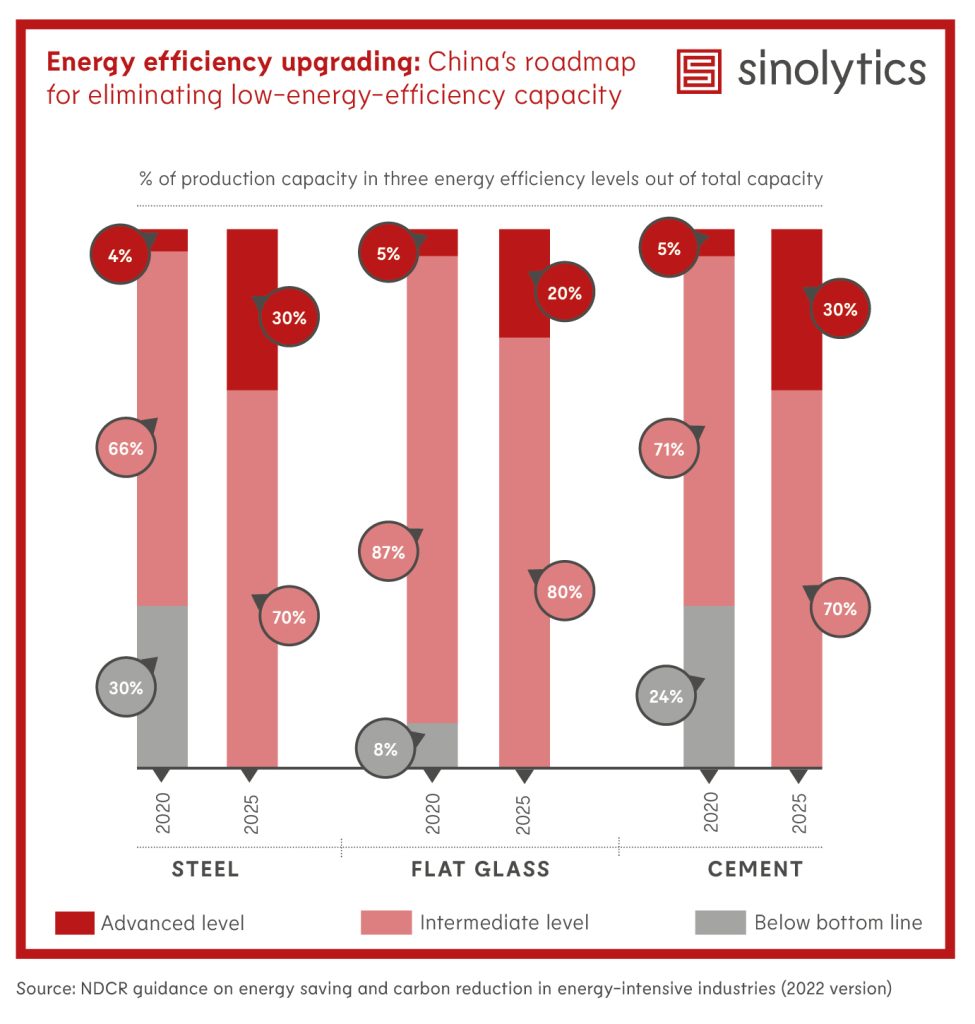
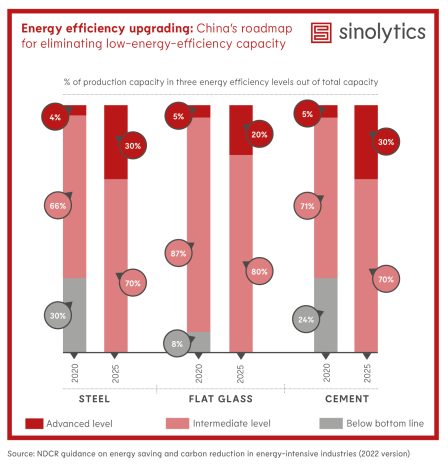
Sinolytics is a European research-based consultancy entirely focused on China. It advises European companies on their strategic orientation and concrete business activities in the People’s Republic.
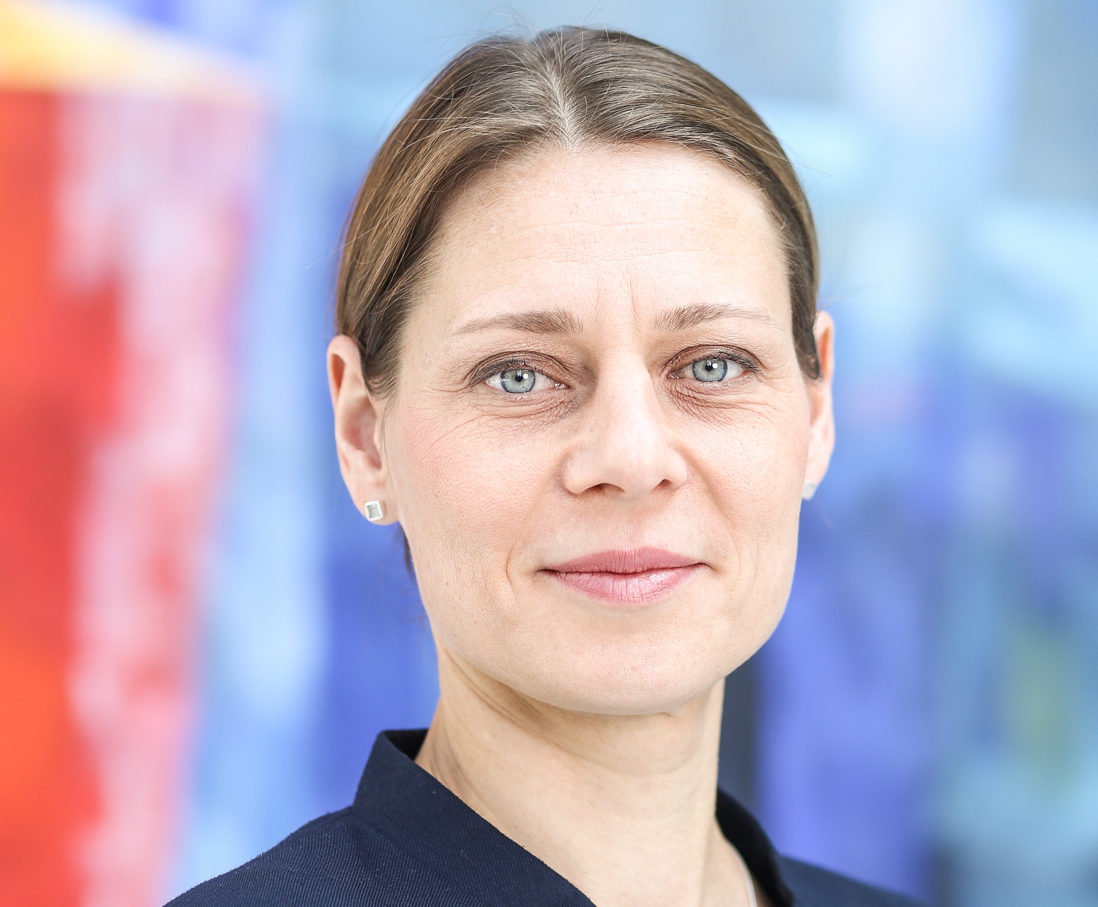
In March, Vera Philipps will begin a new era as the Office Manager of Berlin’s Senator for Economic Affairs Stephan Schwarz. Philipps is turning her back on East Asia with a tear in her eye and will instead focus on local politics. The People’s Republic of China will then probably only be something of a peripheral feature of her everyday professional life – unlike in previous years, when the country formed the core of her work. “China is everywhere,” she says.
This was particularly true of her work as Head of the East Asia Department of the Association of German Chambers of Industry and Commerce (DIHK), a post that has now come to an end. New customs regulations, new data protection laws, the social credit system, or unstable supply chains due to China’s zero-covid strategy: Vera Philipps was always up-to-date. She organized exchanges between the media, ministries, and chambers of commerce, and maintained contacts with local foreign chambers of commerce.
Her knowledge of Chinese proved to be of great help. For example: food imports. German companies suddenly could not get their container loads of goods into the country. Instead of an English registration, information was only available in Mandarin. “The chambers of commerce and industry were unable to do anything about it themselves and asked us to get the ministry involved,” says the 44-year-old. Such problems could by no means be solved with a single phone call, but Philipps helped to initiate the political processes that were needed to find a solution.
Asia, and especially China, run like a thread through Vera Philipp’s life. She has been fascinated by the continent ever since she lived in India for three years as a child and later traveled throughout Asia. At the University of Cologne, she studied modern Chinese studies and focused on economics and politics. She spent time abroad in China, a total of five years, where she met her German husband.
“On my travels, I realized: This country will definitely never bore me. And it will be important enough for me to find a job as an expert on it,” she says. This was followed by, among other things, a stint at the World Health Organization in China. Through local contacts, she got the chance to set up the branch office of a German company that advises companies on climate protection matters. That brought her into contact with the Mercator Foundation, for which she supervised many exchange projects and cooperation programs, first in China and later from Essen in the Ruhr region.
In the past five years, East Asia has returned to the same economic focus she had during her studies. Today, she knows how business associations, the private sector, foundations, and international organizations function. But politics, she says, is something she has yet to learn about. Janna Degener-Storr
Carrie Chen and Raymond Yu have been appointed Co-Heads of investment banking for Greater China by UK financial firm Barclays, effective immediately. Chen has been with Barclays since 2020 and is currently Vice-Chairman of investment banking for Greater China. Yu joined Barclays in 2009 and is currently Head of Power and Utilities in APAC and Head of Real Estate in China.
Dr. Christian Faustmann, Head of Technical Project Management at Audi China, has moved from Beijing to Ingolstadt to lead the technical management on Audi’s Over the Air Update (OTA). Faustmann spent more than three years in China as a project manager.

The Saihanba National Forest Park in Chengde in the northern Chinese province of Hebei. Saihanba is often referred to as the Green Lung of North China. The botanical garden is among China’s 279 most popular tourist attractions, according to the Ministry of Culture and Tourism.
The war in Ukraine is upsetting many of our certainties. One of the most pressing matters that Germany is currently facing is the issue of energy security. In response to the invasion of Ukraine, both the German government and the EU have now announced that they want to accelerate the expansion of renewable energies in order to be less dependent on Russia. The German Minister of Finance Christian Lindner even referred to renewables in the Bundestag as “freedom energies” in this context.
However, this strategy could lead us from one dependency to the next, writes Nico Beckert. The solar industry is dominated by China, after all. European photovoltaic imports from China already amount to 63 percent. The EU also fears that Chinese companies will only serve the domestic market in the event of shortages.
Meanwhile, the mood of the Hong Kong population is deteriorating fast. Over the past two days, almost 70,000 new Covid infections were registered within the city. China’s President Xi Jinping wants to apply his Zero-Covid Policy in Hong Kong with a heavy hand, including a possible lockdown. The German embassy is already preparing its citizens for the “tough weeks” ahead. “Unclear mass testing, quarantine facilities reminiscent of camps, mandatory masks when jogging, friends leaving the country, cordoned off playgrounds: We will all need a lot of discipline and patience,” Consul General Stefanie Seedig explained the situation on Tuesday in a letter to the city’s roughly 2,000 German residents.
Even “a separation of minors from their parents in quarantine or isolation” is imaginable in this uncertain situation, Seedig said. The once vibrant international business hub was already a shadow of its former self before the Covid escalation. These strict measures are likely to drive off even more expats soon.


For decades, Russia reliably ensured Germany’s power supply. This could soon come to an end. Partly in response to the invasion of Ukraine, the German government and the EU want to massively expand renewable energies. In reaction to Putin’s war, German Minister of Finance Christian Lindner even referred to renewables as freedom energies in the German Bundestag. But the solar industry is dominated by China. Are Germany and the EU slipping from one dependency to the next? And how will the prices for solar modules develop if two economic areas as large as the EU and China expand their solar power simultaneously?
The Russian invasion of Ukraine shows how risky gas dependency is. That is why the German government now wants to speed up the expansion of renewables even more. According to the next eco-electricity amendment, renewable energies are to cover “almost all” of the country’s power demand by as early as 2035. Solar power plays an important role in this. By 2030, it is to provide 200 gigawatts of capacity – a fourfold increase on the current figure.
The EU will also soon present a new energy strategy. According to insiders, fossil fuels are to be cut by 40 percent by 2030 with renewables being expanded at a faster pace. In addition, further investments in renewables are to be made. An EU strategy to accelerate the expansion of solar power is expected to be announced in June.
But when it comes to the expansion of solar power, the EU and Germany are at risk of becoming even more dependent on China. This is because the entire solar supply chain is dominated by the People’s Republic. Worldwide, three out of four solar modules and 83 percent of solar cells are manufactured in China. As for the raw material polysilicon, the country dominates 77 percent of the world market. The EU Commission recently cautioned against excessive dependence. EU countries produce only 0.4 percent of global solar cells and only two to three percent of modules.

This Chinese dominance is causing great concern for the EU. Supplies from China account for 63 percent of European photovoltaic imports. The solar industry could end up in a situation where it is no longer possible to switch to other suppliers, the EU cautions. The commission warns of “strategic dependence that could, in turn, hamper the EU’s future deployment of solar technologies,” according to a recent report. The EU fears that shortages could result in China serving only its domestic market. “Chinese authorities have tools at their disposal to establish a preference for supply of the domestic market, even in the absence of formal export restrictions,” according to the EU Commission’s assessment.

Today, dependence on China already appears to be having a negative impact on solar expansion. “Country-specific events can severely hamper, delay or worst case altogether stop the import and subsequent necessary deployment of solar technologies in the EU,” according to the EU Commission. These issues, along with rising prices for raw materials and power, as well as for transportation and logistics, are said to be the reason that 20-25 percent of planned solar projects in the EU in 2021 have either been postponed or canceled altogether.
For this reason, the EU wants to reduce its dependence on China. European manufacturers intend to increase annual production in all segments of the supply chain – from polysilicon to wafers, solar cells, and modules – to 20 gigawatts by 2025. Given the major expansion targets set by the EU and Germany, however, that is merely a drop in the ocean. And the EU complains that the industry is missing the 20-gigawatt target. It could only be achieved for polysilicon, as industry data show.
The EU Commission proposes that member states should simplify and streamline approval processes for the installation of new solar farms. That would give European solar manufacturers “further certainty when upscaling production capacities,” the commission states. In addition, states could provide financial support to the industry. Internationally, the EU wants to provide a “level playing field”. Specifically, this means that subsidies from other states should not distort the international market for solar products.
The expansion goals for European solar power could lead to a price explosion. Especially since China also has ambitious expansion goals. The People’s Republic will most likely install more than 100 gigawatts of new photovoltaic capacity in the current year alone – almost half of the global expansion forecast for this year. In the People’s Republic, the cost of building solar farms rose last year for the first time in 15 years. However, industry experts believe that the price increase will only last for a short time. The reason is the high polysilicon price. However, China has massively expanded production of the raw material for solar plants (China.Table reported).
Accordingly, experts do not expect a shortage. On the contrary. “The production capacities newly announced and currently under construction in China are so massive that, in all likelihood, there will be an oversupply of polysilicon by 2024 at the latest,” says Johannes Bernreuter, a polysilicon expert from the consulting firm Bernreuter Research. Despite the rising demand, prices for solar modules and systems will soon fall again, says Bernreuter.
The industry expert adds that it also remains to be seen whether the efforts of the EU, the US, and India to reduce their dependence on China will be successful. “It certainly won’t be easy,” Bernreuters believes. In the short term, the goal is hardly achievable. BloombergNEF’s experts also report that it will take a long time for new “solar plants” outside China to reach a significant production scale: “Manufacturers will likely be wary of expanding into an oversupplied market in the absence of solid and guaranteed demand for solar products at premium prices.”


The German embassy in Hong Kong views the upcoming Covid mass testing in the metropolis with great concern. Consul General Stefanie Seedig addressed all German citizens in the city on Tuesday in a three-page letter obtained by China.Table. “Fellow countrymen, we are facing tough weeks in Hong Kong. Unclear mass testing, quarantine facilities reminiscent of camps, mandatory masks when jogging, the exodus of friends, cordoned off playgrounds. […] We will all require a lot of discipline and patience,” Seedig wrote.
Above all, the consulate fears “a separation of minors from their parents in quarantine or isolation.” The German government had expressed this concern in discussions with the government in Beijing a few days ago. The reason is the announced mass testing, which is to commence soon, due to the drastically increasing infection rates (China.Table reported).
Over the past two days, a total of almost 70,000 new infections have been registered within the city, after Hong Kong remained mostly unscathed by the pandemic for more than two years. All residents of the city are therefore to be tested three times within a few weeks. So far, it is unclear exactly what will happen when children test positive while their parents test negative. Hospitals are to decide for each individual case.
To increase the effectiveness of the testing campaign, a possible lockdown of the city for nine days is currently being discussed. At present, only strict distancing mandates and severe limitations on the freedom of movement of unvaccinated individuals are in place. However, people are still allowed to go to work regularly. The stock market also remains open. International schools are holding distance classes.
According to Statista, about 2,000 German citizens lived in Hong Kong in 2020 among its nearly 7.5 million residents. One of the Germans, a research associate at a university in Hong Kong, who wishes to remain anonymous, criticized the authorities’ policy. “After two years of successful pandemic response, the Hong Kong government faces many home-grown challenges. The population was lulled into a sense of security for far too long, and vaccination readiness, especially among the elderly, was too low. Now, the healthcare system is on the verge of collapse,” she told China.Table. There is a general lack of trust in the authorities, who have been harshly punishing political dissent even at the smallest level since the introduction of the National Security Law.
“We cannot enter Mainland China, or any other foreign country, without weeks of grueling and expensive hotel quarantine. Many people have been unable to see their families for two years, including their families on the mainland. As a result, there has been an increase in long-term departures, especially in recent weeks,” the researcher says. In addition, flight bans have been imposed repeatedly.
As a result, the German embassy has braced itself for a possible increase in the number of Germans seeking to leave the country. “We have noticed that you now increasingly need our services to get your papers in order and prepare for a possible departure,” Seedig writes. Additional stand-by service has also been set up for the period of the mass testing.
Over the past few days, several foreign diplomats have complained that conditions are no longer acceptable. The EU envoy in Hong Kong, Thomas Gnocchi, informed government executive Carrie Lam in a letter that ten percent of Europeans had already left the city in the past year. Mainly because of the uncertainties caused by Covid measures. The letter also said that, in addition, some European companies had already turned their backs on the city. He urged the government to reconsider the current school closures and isolation measures and to adhere to the World Health Organization’s standards for isolating COVID-19 patients.
Meanwhile, the People’s Republic of China has issued warnings that the city’s local health care system could soon be overwhelmed. According to a representative of China’s National Health Commission, 9,000 medical staff are on standby to help carry out the tests in Hong Kong.
The main cause of overcrowding in hospitals is that everyone who is infected has to seek treatment, whether they show symptoms or not. Those who are infected are supposed to be isolated in the hospital or quarantine centers. Simply staying in one’s own home is not possible, under Hong Kong’s regulations. Container cities are now being hastily built to house the infected. The city government had already reserved 20,000 hotel beds last week to isolate infected individuals (China.Table reported).
French Consul General Alexandre Giorgini also sent a letter to his country’s nationals in Hong Kong last week, writing that the government had not consulted the consulate on these new measures despite large expat communities in the city. “The measures announced profoundly affect everyone’s life, with a price to pay that has not stopped increasing for two years, especially for families and children,” he wrote. Giorgini said that while the consulate is committed to defending the interests of French nationals, the situation in Hong Kong would remain critical for several months.
Dutch Consul General Arjen van den Berg also addressed the Hong Kong government, warning that a number of Dutch residents were considering leaving the city because their employers had decided to relocate. He expressed disappointment that “everything is now further locked up with no immediate prospect of reopening.” Meanwhile, Canadian Consul General Rachael Bedlington said the government’s new measures had “exacerbated the anxiety” of many Canadians in Hong Kong.
The wave of diplomatic indignation was probably noted by the Head of Government, Carrie Lam. However, observers see no chance that Hong Kong will abandon its strict measures. After all, authorities now have to follow Beijing’s guidelines. It is said that President Xi Jinping has already lost patience because of the exploding numbers in Hong Kong. Now, more Chinese experts and central government helpers are flocking to Hong Kong and neighboring Shenzhen every day “to restore order”. Fabian Peltsch/Jörn Petring/Gregor Koppenburg
Ukrainian Foreign Minister Dmytro Kuleba spoke on the phone with his Chinese counterpart Wang Yi on Tuesday. During the conversation, he requested China to influence Moscow to stop the war in Ukraine. This is according to a statement released on Tuesday by the Ukrainian Foreign Ministry. Wang had assured that China would make every effort to resolve the conflict diplomatically. This marks the first talks between Ukraine and China since the war broke out.
According to the version of Chinese news agency Xinhua, the Chinese Foreign Ministry said that China supports all measures that may help to find a political solution. China wants to play a constructive role in the Ukraine situation. Ukraine, in turn, hopes to deepen communication with China to reach a ceasefire, Xinhua reported. Wang reportedly stressed that China has always believed that the security of one country cannot be achieved at the expense of the security of other countries. Regional security could not be achieved by expanding military blocs. He is alluding to NATO’s eastward expansion.
The phone call was the first direct talk between representatives of the two countries since Russia’s attack on Ukraine last Thursday. According to the Chinese Foreign Ministry, the phone call came about at Kuleba’s initiative. Beijing has so far not taken a clear position on the invasion by Russian troops. China decides its stance and policy on a case-by-case basis, Foreign Ministry spokesman Wang Wenbin had explained on Monday. China would be a “strategic partner” of Russia, not an “ally”. fpe
US President Joe Biden has announced that a delegation of defense and security experts will be dispatched to Taiwan “in show of support,” according to a Reuters report. Experts are reported to be one-time chairman of the Joint Chiefs of Staff Mike Mullen, who served as top Navy admiral under Presidents George W. Bush and Barack Obama. He will be accompanied by Meghan O’Sullivan, a former deputy national security advisor under Bush, and Michele Flournoy, a former undersecretary of defense under Obama
Also expected to join are Mike Green and Evan Medeiros, two former National Security Council senior directors for Asia. The delegation of experts is expected to remain in Taiwan until Wednesday evening, during which time they will consult with President Tsai Ing-wen and Defense Minister Chiu Kuo-cheng, among others. Tsai’s office confirmed the visit, saying the timing “showed Taiwan-US ties were ‘rock solid’.”
Following the invasion of Ukraine by Russian troops, military experts fear that Beijing could take advantage of the situation to seize the island that China has declared a breakaway province. Already a few days ago, a US warship passed through the Taiwan Strait. The US military spoke of a routine operation, while Beijing condemned the crossing as a “provocation.” fpe
China has cut back imports of Russian coal. The move was said to be prompted by shaky financing due to Western sanctions. Most banks had “stopped issuing letters of credit and other trade financing to Russian banks,” a China-based trader told Reuters on Tuesday.
Over the weekend, the US, EU and their allies had cut off Russian banks from the Swift international payment system, which is used for most international financial flows. Some Chinese traders are now trying to pay for shipments with the Chinese national currency, renminbi, or conduct trade through China’s alternative payment system, Cips.
China had already introduced its clearing and settlement system Cips (China’s Cross-Border Interbank Payment System) in 2012 to internationalize the Chinese currency more strongly. However, the system is currently still largely dependent on Swift for cross-border communication, writes the German business newspaper Handelsblatt.
China is Russia’s largest coal importer. Last year, the People’s Republic imported more than 50 million tons of coal, worth $7.4 billion, from the eastern part of the country. Russia thus accounted for about 15 percent of China’s total imports, making it the second-largest supplier after Indonesia. However, due to large domestic coal stocks and the upcoming seasonal drop in demand for thermal coal, Chinese buyers can afford to suspend imports for the time being.
Coal prices from exporters such as Indonesia, Australia, and South Africa surged this week. A record price of $274.50 per ton was reached on Monday, representing a 15 percent increase. ret/fpe
China’s CO2 emissions rose by four percent last year compared to the previous year. That is according to new data from the National Bureau of Statistics. The reason: the People’s Republic consumed more coal, oil, and gas last year. In detail, consumption of:
The increase in coal consumption is the largest in just over a decade, Reuters reports. Coal accounted for 56 percent of total energy consumption last year, 0.9 percent less than in 2020, and CO2 emissions per unit of economic output fell by 3.8 percent compared to 2020. China’s climate plans (China.Table reported) call for CO2 emissions to drop by 65 percent relative to economic output by 2030 compared to 2005. In addition, the peak in greenhouse gas emissions is to be reached by 2030 – however, Beijing has not (yet) set an absolute target. nib


Sinolytics is a European research-based consultancy entirely focused on China. It advises European companies on their strategic orientation and concrete business activities in the People’s Republic.

In March, Vera Philipps will begin a new era as the Office Manager of Berlin’s Senator for Economic Affairs Stephan Schwarz. Philipps is turning her back on East Asia with a tear in her eye and will instead focus on local politics. The People’s Republic of China will then probably only be something of a peripheral feature of her everyday professional life – unlike in previous years, when the country formed the core of her work. “China is everywhere,” she says.
This was particularly true of her work as Head of the East Asia Department of the Association of German Chambers of Industry and Commerce (DIHK), a post that has now come to an end. New customs regulations, new data protection laws, the social credit system, or unstable supply chains due to China’s zero-covid strategy: Vera Philipps was always up-to-date. She organized exchanges between the media, ministries, and chambers of commerce, and maintained contacts with local foreign chambers of commerce.
Her knowledge of Chinese proved to be of great help. For example: food imports. German companies suddenly could not get their container loads of goods into the country. Instead of an English registration, information was only available in Mandarin. “The chambers of commerce and industry were unable to do anything about it themselves and asked us to get the ministry involved,” says the 44-year-old. Such problems could by no means be solved with a single phone call, but Philipps helped to initiate the political processes that were needed to find a solution.
Asia, and especially China, run like a thread through Vera Philipp’s life. She has been fascinated by the continent ever since she lived in India for three years as a child and later traveled throughout Asia. At the University of Cologne, she studied modern Chinese studies and focused on economics and politics. She spent time abroad in China, a total of five years, where she met her German husband.
“On my travels, I realized: This country will definitely never bore me. And it will be important enough for me to find a job as an expert on it,” she says. This was followed by, among other things, a stint at the World Health Organization in China. Through local contacts, she got the chance to set up the branch office of a German company that advises companies on climate protection matters. That brought her into contact with the Mercator Foundation, for which she supervised many exchange projects and cooperation programs, first in China and later from Essen in the Ruhr region.
In the past five years, East Asia has returned to the same economic focus she had during her studies. Today, she knows how business associations, the private sector, foundations, and international organizations function. But politics, she says, is something she has yet to learn about. Janna Degener-Storr
Carrie Chen and Raymond Yu have been appointed Co-Heads of investment banking for Greater China by UK financial firm Barclays, effective immediately. Chen has been with Barclays since 2020 and is currently Vice-Chairman of investment banking for Greater China. Yu joined Barclays in 2009 and is currently Head of Power and Utilities in APAC and Head of Real Estate in China.
Dr. Christian Faustmann, Head of Technical Project Management at Audi China, has moved from Beijing to Ingolstadt to lead the technical management on Audi’s Over the Air Update (OTA). Faustmann spent more than three years in China as a project manager.

The Saihanba National Forest Park in Chengde in the northern Chinese province of Hebei. Saihanba is often referred to as the Green Lung of North China. The botanical garden is among China’s 279 most popular tourist attractions, according to the Ministry of Culture and Tourism.
